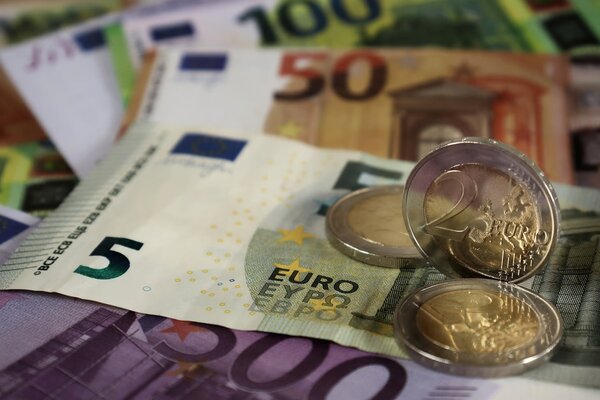Price pressures in the eurozone exceeded expectations in April, raising fresh challenges over the disinflation trend and potentially complicating the European Central Bank’s (ECB) roadmap to lower interest rates further in the coming months, Euronews reported.
According to preliminary figures released by Eurostat on Friday, consumer prices rose 2.2% year-on-year, unchanged from March but slightly above the 2.1% forecast by economists.
On a monthly basis, inflation accelerated by 0.6% as in March, suggesting that disinflationary momentum may be stalling.
More worryingly for policymakers in Frankfurt, core inflation—which excludes volatile food and energy prices—rose to 2.7% in April, up from 2.4% the previous month and well above the 2.5% consensus estimate. It was the first uptick in core inflation since May 2024, with services once again leading the charge. Services inflation, a central metric in the ECB’s assessment of underlying price pressures, surged to 3.9% annually, up from 3.5% in March. On a month-on-month basis, services prices increased by 0.9%.
Across the euro area, inflation remained highly uneven. Estonia recorded the highest annual inflation rate at 4.4%, followed by the Netherlands and Latvia at 4.1%. France saw the lowest price growth, with annual inflation at just 0.8%.
Despite the stronger-than-expected inflation print, financial markets remained largely undisturbed. Investors appeared to maintain confidence that the ECB would press ahead with a rate cut in June, with markets largely interpreting April’s data as a temporary bump rather than a shift in trend. German two-year Schatz yields, often seen as a barometer of ECB policy expectations, held steady at 1.73%, while ten-year Bund yields remained unchanged at 2.46%.
The euro also shrugged off the data, holding onto prior gains against the dollar at 1.1330. Equity markets, meanwhile, extended their rally, buoyed by corporate earnings and investor optimism. The EuroSTOXX 50 index rose 0.8% on Friday, while Germany’s DAX climbed 1.8%, on course for its eighth consecutive day of gains. Defence powerhouse Rheinmetall AG led the DAX higher, jumping 3.6% to hit new record levels amid continued demand for military equipment. Within the broader EuroSTOXX 50, ING Groep, Airbus and Bayer were top performers, rising 5.2%, 5.1% and 4.2%, respectively.
On the downside, Munich RE and energy group RWE lost 4.9% and 3.6%. Eurozone banks also gained ground, with the EuroSTOXX Bank index up 1.9%, reflecting resilient investor sentiment amid a potentially prolonged period of restrictive policy.
MNA/







